Tactical breakdown: Where England are going wrong and how they can improve

Three games, 11 shots on target and two goals.
Lots of questions are being asked about why England have been such an underwhelming attacking force so far at Euro 2024.
Before Sunday’s last-16 tie with Slovakia, I’ve taken a close look at England's matches against Serbia, Denmark and Slovenia to try to explore why their front four has not clicked yet, and how they can improve.
Not just a Foden and Bellingham problem
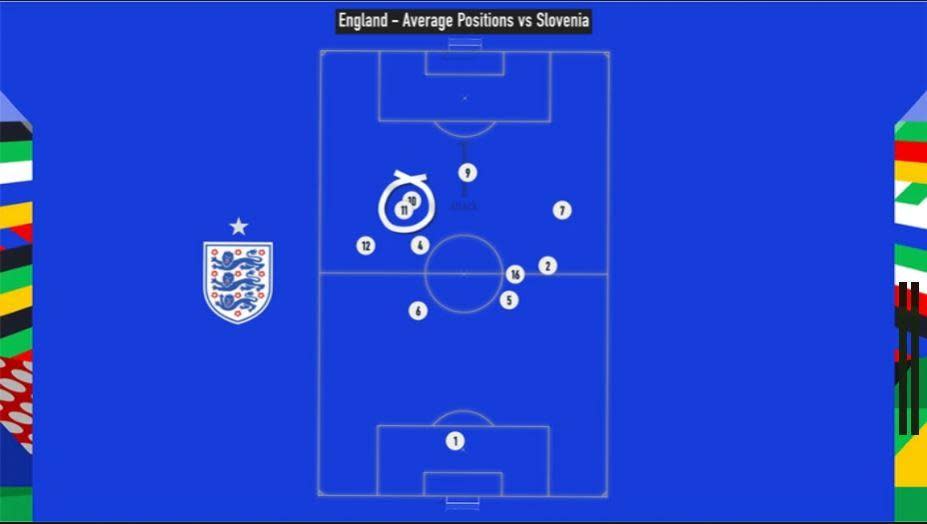
It always seems very crowded in the middle of the pitch whenever England have the ball in the opposition half.
I had seen the graphic above showing how the average position of Jude Bellingham and Phil Foden’s touches were almost identical against Slovenia, but the issue is not as simple as just those two both trying to operate as a number 10 in the same areas, and getting in each other’s way.
It’s not a Bellingham and Foden problem, it’s a team problem where everyone wants to get in there, and is too close together, too early.
Why width matters
Keeping your width, especially at the start of games, is vital to create the space you want in central areas.
Manchester City are the best example of a team that does that. They always get their wide players to stay high and wide for the first half-hour because if you stretch the pitch, someone has got to go and mark you.
That leaves room in the middle which, with England, is the space Bellingham would move into.
England haven’t been doing that, though. Instead, they’ve been coming into those central areas straight away. I saw examples in all three games where our front four are all within a stone’s throw of each other, with six or seven opposition players all close by ready to pounce.
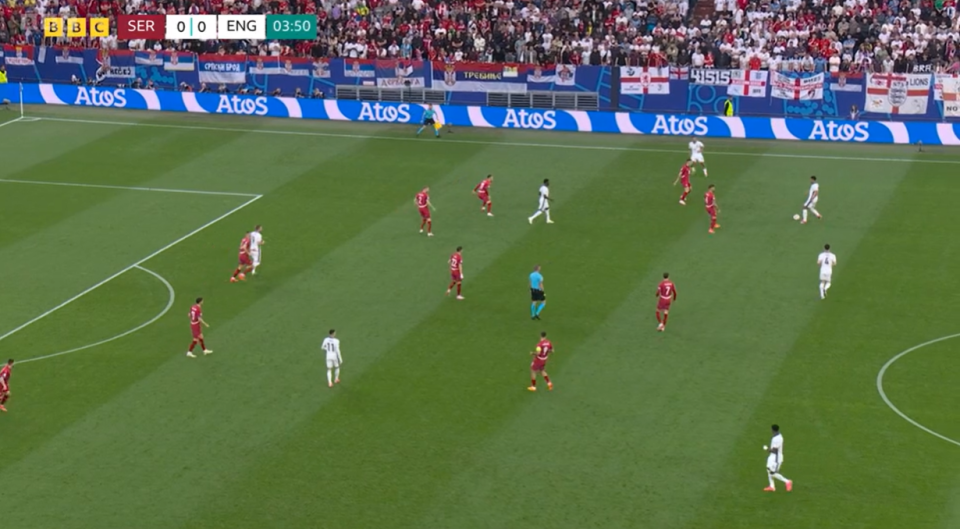
In the image above, you can see Bellingham on the ball, Bukayo Saka has come off the right and Foden is inside from the left. There are nine Serbia players around them.
That in itself is an issue. Coming into these pockets is fine, but if all of you are in there too early then it is very easy to play against. The defenders can stay narrow, and they are all very comfortable.
Trent Alexander-Arnold is wide on the right, so you could argue that is why Saka can come inside like he has done here, but when the pass comes to Saka he has three players near him and can only go backwards.
The image below, from the second half of the same game, illustrates the same issue.
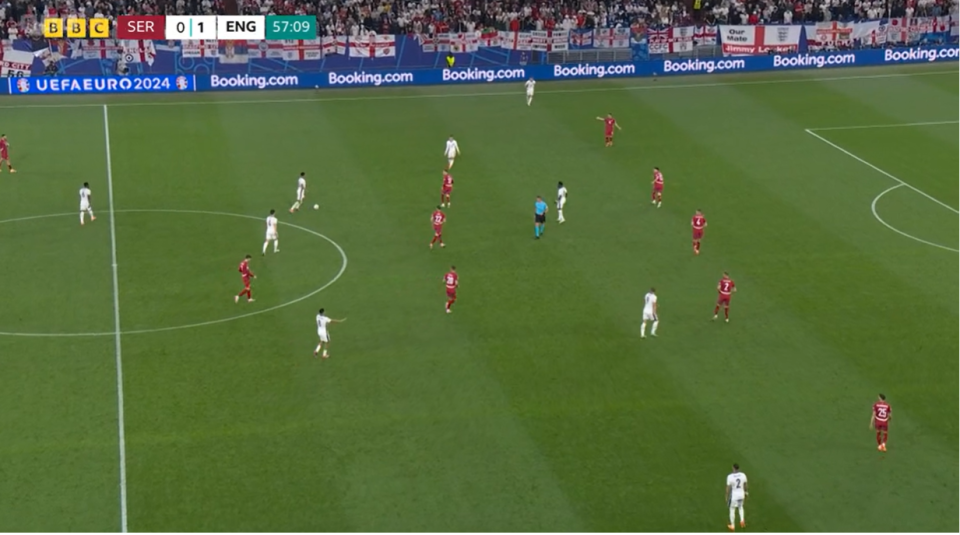
Again Bellingham is on the ball, and all three England forwards in front of him are close enough to throw a towel over them, with seven Serbia defenders close by.
Our only available outlet out wide is the full-back, Kieran Trippier, but he is a right-footed left-back and Serbia have done their homework. They don’t care about him because they know England won’t play forward to him down that flank.
The solution here is to mix it up - as well as not being too condensed, too early, pick your moments when you do come inside.
We know England can do it because they showed us that in the last 20 minutes against Slovenia.

The difference here is that, in the image above, Bellingham is just behind Kane, with both of them looking to run in behind, and Foden is wide on the left.
That means Cole Palmer, who has just come on has a big space to run into (below) because Slovenia are stretched.
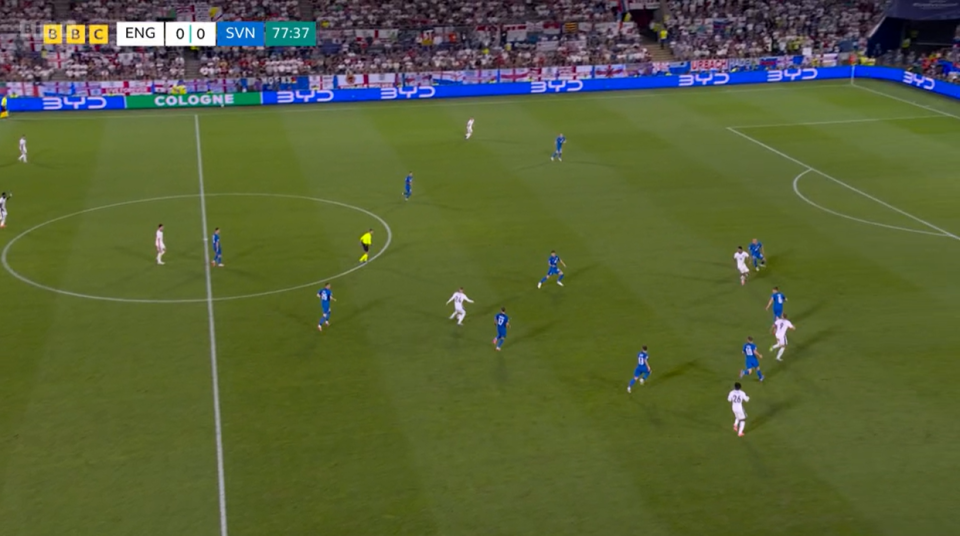
The space would not be there if, as before, Foden was inside, Bellingham was deep and Kane was dropping in, but because of what they are doing now he has room to come infield and play.
It also means Palmer has lots of good options in front of him. He chooses to find Kane, who is still on the move towards the right-hand side of the box, gets to the byeline and puts in a really dangerous cross that flashes across the face of goal.
Take more risks
Some of the main criticism England’s forwards have had up until now is that they prefer to come and collect a ball played to their feet, so there are no runs being made behind the defence.
That’s not always the case, though. As well as the Kane example above, I saw lots of occasions where players made really good runs behind but we were not brave enough to try to find them.
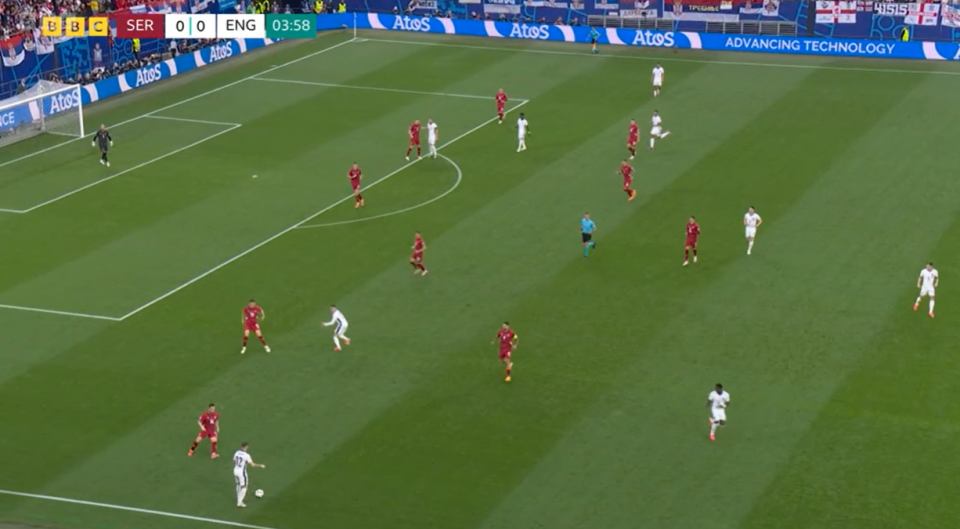
Phil Foden’s run here into the left-hand corner of the area in the image above is an example of that. It’s a tight first-time pass for Kieran Trippier but he is capable of playing it with his right foot. Although it is a brave pass, it’s worth the reward, and Foden is used to people firing those balls in to him when he plays for Manchester City.
The ball goes backwards instead, but England’s forwards keep moving and a few seconds later it is Bellingham who makes the run past Kane and into the area, shown in the image below.
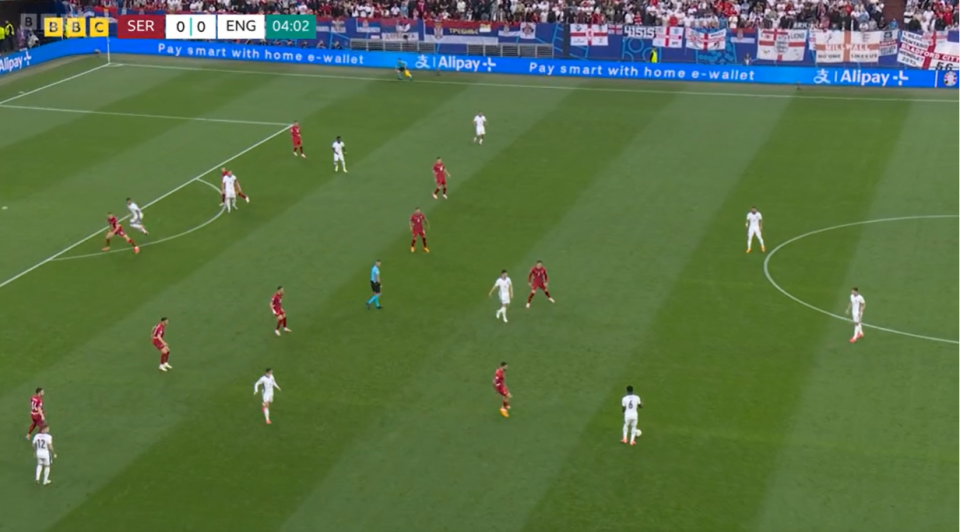
This is another occasion when the ball should be played forward. In fact, because of Bellingham’s run, Marc Guehi has two options - he can either look to play him in or try to find Kane’s feet because that run has created the space to do either - but instead England go sideways again.
Bellingham loves breaking the lines like this and below we can see him doing it again against Denmark. He sprints from deep, and this time Saka looks almost poised to play him in - but then goes backwards.
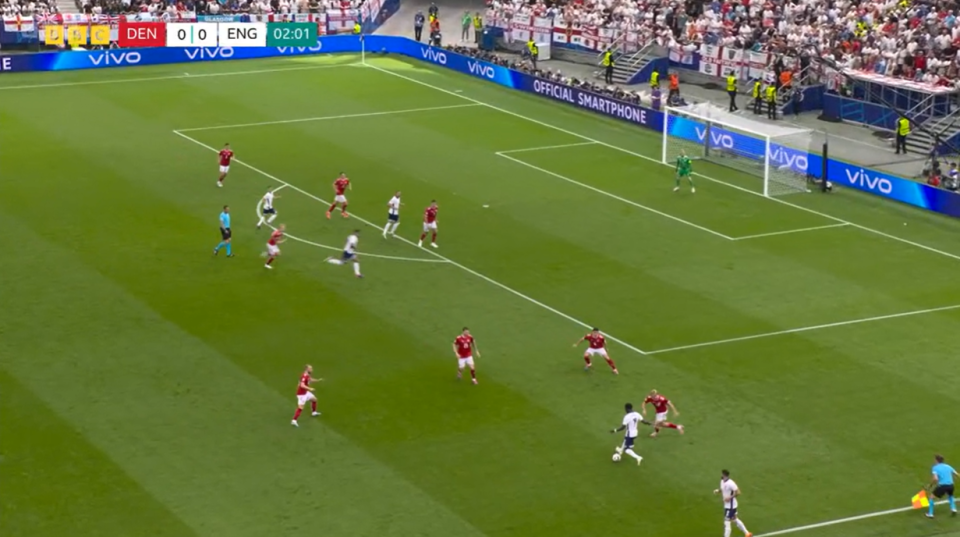
It is especially frustrating to watch because on the odd occasion we have played a positive pass and found Bellingham when he has run behind the defence, we have almost got a reward.

Kane played a brilliant ball into him against Slovenia (above) and if Bellingham has a better first touch (below) he is through one-on-one.
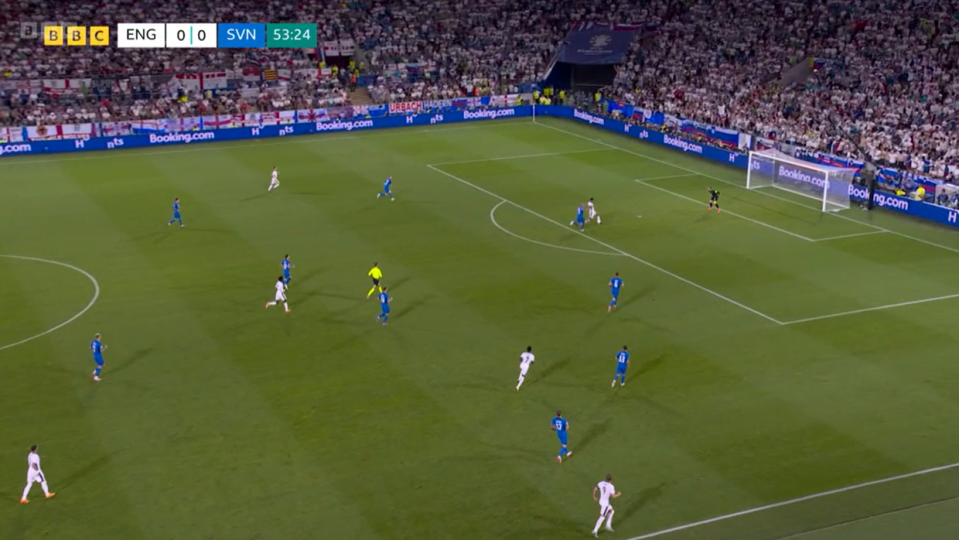
That has got to happen more often against Slovakia because if we don’t start trying find him more often, then Bellingham is going to stop making these runs.
Of course we want to keep the ball, but in situations like this we should not worry about losing it. If England take more risks, they will get their reward.
Danny Murphy was speaking to BBC Sport's Chris Bevan in Berlin.

 Yahoo Sports
Yahoo Sports 
